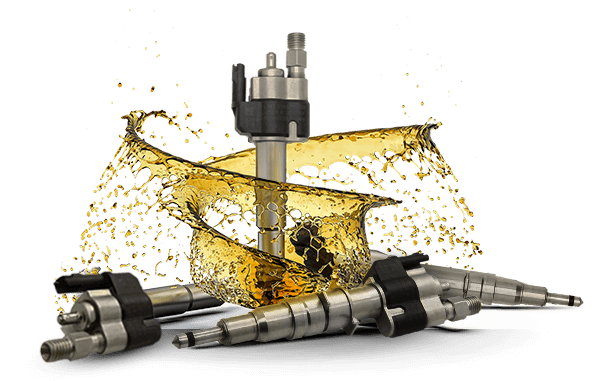When it comes to GDI testing, there is a difference.
The Injector Shop Difference
Gasoline Direct Injection (GDI) is the newest fuel injection system to be extensively used in automotive applications. GDI has been around since WWII but has just recently in the last decade become wildly popular for use in automotive applications. In a GDI system, gasoline is directly injected into the combustion chamber at very high pressures (typically around 350 BAR or 5000+ PSI) to overcome the high cylinder pressures seen in the combustion chamber. In contrast, port injection systems inject fuel into the intake plenum behind the intake valves at a much lower pressure (typically up to 4 BAR / 58PSI). GDI systems allow the automotive manufactures to tune GDI equipped vehicles for increased performance, increased fuel economy, reduced emissions, and reduced combustion chamber temperatures.
Because of this major operational difference between GDI and port fuel injectors, The Injector Shop tests GDI fuel injectors on the GDI specific test equipment. We DO NOT test GDI injectors on port fuel injector benches like the very common ASNU or GB models that most of our competitors use.
Because The Injector Shop uses GDI specific test equipment, all GDI fuel injectors are tested at actual operating pressures, against OEM injector number specific test plans. Flow measurement is done by measuring actual flow volume in cubic centimeters, on a shot-to-shot basis, through very sophisticated and accurate flow instrumentation. A purpose built, liquid filled viewing chamber is used to safely analyze spray patterns and leak down at operating pressures.
Performance to OEM test plans are documented and provided back to the customer with a 100% guarantee that the GDI injectors have been tested to the part number standard at real operating conditions. This is something that port fuel injector benches simply cannot do. PERIOD!
We are not knocking port fuel injector benches, we have them too, and they work GREAT on port injectors. We are also not knocking the very honest companies that offer GDI services on their port fuel injector benches. Port fuel injector benches are just not made with the ability to safely, and fully test GDI injectors under real operating conditions. Port injector benches can operate the GDI specific electrical if they are equipped to do so, but they CANNOT, and I repeat CANNOT test at operating pressures and CANNOT perform actual OEM operating test plans with documented test results. On port fuel injector benches you can see cool spray patterns at low pressure (typically 10 bar), and you can measure flow volumes in cylindrical volume tubes at low pressure (again, typically 10 bar), but this IS NOT how GDI injectors are operating in your vehicle, and it is not how GDI injectors are tested / rated at the OEM manufacturing level. This means that port bench test reports represent nothing but a number that DOES NOT align to any OEM operational standard. Simply put, you are receiving the flow bench operators best guess as to how your GDI fuel injectors are performing if the testing was performed on a port injector flow bench. PERIOD!
At The Injector Shop we have invested in the proper precision test equipment to safely and accurately test GDI fuel injectors at operating conditions, and be able to provide our customers this next level service. We are never going to guess whether your GDI fuel injectors are performing to OEM standard, and we will never tell you a story about how low-pressure testing is accurate. We will always strive to provide our valued customers with what they deserve, economical, accurate, and professional service on your GDI fuel injectors.


